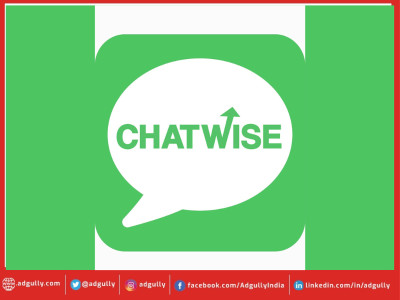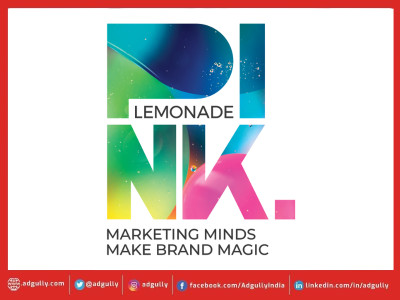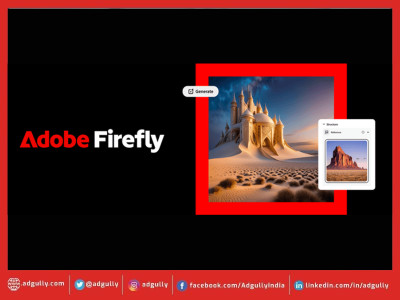The Role of AI in Supercharging Startup Marketing Efforts
Authored by Ayush Wadhwa, Founder, OWLED Network
In today's fast-paced digital landscape, startups are continually searching for innovative ways to gain a competitive edge. One technology that has revolutionised the marketing industry is artificial intelligence (AI). By leveraging AI, startups can scale their digital marketing efforts, streamline processes, and enhance customer experiences.
According to a report by Salesforce, 84% of marketers reported adopting AI for better results. Companies are reporting a 52% increase in customer conversions and a 61% reduction in customer acquisition costs by leveraging AI in marketing initiatives. So, what led to this rise in the usage of AI across sectors for better results? Was it the ease AI provides in managing tasks or how AI foresees and predicts patterns that help in better planning? Honestly, AI is all this and more.
Enhanced Personalization
Personalization has become a cornerstone of effective digital marketing, allowing brands to engage with customers on a more individual level. Startups are leveraging AI to gather vast amounts of data from various sources and gain valuable insights into customer preferences, behaviours, and purchasing patterns. This enables them to create highly targeted and personalised marketing campaigns.
One remarkable example is Netflix, the popular streaming service. Netflix employs AI algorithms to analyse user viewing habits and provide personalised recommendations. By leveraging AI-driven personalization, Netflix has significantly increased customer satisfaction and retention rates, creating a loyal and engaged user base.
Netflix's AI-powered recommendation engine analyses data points such as viewing history, genre preferences, and ratings to suggest relevant movies and TV shows to each user. This level of personalization has played a significant role in attracting new subscribers and keeping existing ones engaged with the platform.
Intelligent Chatbots
Startups are increasingly adopting AI-powered chatbots to deliver seamless customer service and support. These intelligent virtual assistants can handle a wide range of customer inquiries and provide instant responses 24/7. By automating routine tasks and providing accurate information, chatbots help startups scale their customer support efforts without the need for a large support team.
A prime illustration of this is the e-commerce giant Shopify. Shopify integrates AI-powered chatbots into its platform to assist merchants and customers. These chatbots can answer frequently asked questions, provide product recommendations, and even process orders. By utilising AI-driven chatbots, Shopify has significantly improved customer satisfaction and reduced response times, ultimately enhancing the overall customer experience.
Shopify's AI chatbots, powered by natural language processing (NLP) algorithms, can understand and respond to customer inquiries in a conversational manner. They provide prompt assistance, helping customers navigate through the platform, resolve issues, and make informed purchasing decisions.
Predictive Analytics
AI-driven predictive analytics enables startups to make data-driven decisions and optimise their marketing strategies. By analysing historical data, startups can forecast future trends, identify customer preferences, and predict potential churn. This empowers startups to allocate resources effectively, target the right audience, and maximise return on investment (ROI).
A compelling real-time example of predictive analytics in action is Amazon. Amazon's AI algorithms analyse customer data, purchase history, and browsing patterns to make accurate product recommendations. By leveraging predictive analytics, Amazon has created a highly personalised shopping experience, resulting in increased sales and customer satisfaction.
Amazon's recommendation engine uses AI to analyse vast amounts of data, including customer preferences, browsing behaviour, and purchase history. Based on this analysis, Amazon presents customers with personalised product recommendations, leading to higher conversion rates and increased customer loyalty
Automated Ad Campaigns
Managing and optimising digital advertising campaigns can be time-consuming and resource-intensive for startups. AI-powered tools automate various aspects of ad campaigns, such as targeting, bidding, and creative optimization, enabling startups to reach their target audience more efficiently and effectively.
One notable example is Grammarly, a writing assistant tool. Grammarly utilises AI to automatically optimise its ad campaigns across multiple platforms. By analysing user behaviour and engagement data, Grammarly's AI algorithms can identify the most relevant ad placements and optimise bidding strategies in real-time. This automation has led to increased user acquisition and improved cost-effectiveness for Grammarly.
Grammarly's AI-driven ad campaign optimization involves analysing user engagement data to identify the most effective ad placements, adjust bidding strategies, and optimise ad creative elements. By automating these processes, Grammarly has achieved higher ad relevance, increased user acquisition, and improved overall campaign performance.
AI - An Ally in True Sense
AI has become an indispensable tool for startups looking to scale their digital marketing efforts. From enhanced personalization to intelligent chatbots, predictive analytics, and automated ad campaigns, startups are leveraging AI-driven solutions to streamline processes, improve customer experiences, and achieve their marketing goals. Real-time examples, such as Netflix, Shopify, Amazon, and Grammarly, highlight the tangible benefits of AI in driving growth, increasing customer engagement, and optimising ROI. As AI continues to evolve, startups must embrace this transformative technology to stay competitive and deliver exceptional digital marketing campaigns in an ever-evolving digital landscape.


















Share
Facebook
YouTube
Tweet
Twitter
LinkedIn